As industries evolve and challenge the status quo, artificial intelligence (AI) stands at the forefront of revolutionizing traditional models. The emergence of innovative platforms like INONX AI is reshaping how businesses manage resources, particularly in the retail sector. In this article, we will explore the latest trends in AI for resource management, delving into applications, technical insights, and real-world industry use cases featuring INONX AI and its suite of solutions, like AIOS for Retail Automation.
.
**The Rise of AI in Resource Management: A Game Changer for Retail**
Today’s retail environment is fraught with complexity—from dynamic consumer behavior to supply chain disruptions. Businesses are breaking traditional boundaries by integrating AI-driven solutions that streamline operations, optimize inventory, and enhance customer experiences. AI serves as a virtual partner, analyzing data at lightning speed and making predictions that can dramatically impact resource management strategies.
.
INONX AI has emerged as a frontrunner in this space by providing cutting-edge tools that aid retailers in making calculated decisions. The platform integrates machine learning algorithms with data analytics to forecast demand, optimize inventory levels, and reduce operational costs. Retailers can enhance resource allocation, minimize waste, and ultimately boost profitability.
.
**AIOS: The Retail Automation Revolution**
At the heart of INONX AI’s offerings lies AIOS (Artificial Intelligence Operating System) for Retail Automation. AIOS provides a comprehensive framework that integrates intelligent automation throughout various retail operations, from supply chain management to customer engagement.
.
By employing AI-driven predictive analytics, AIOS equips retailers with insights into consumer trends, allowing them to optimize stock levels dynamically. This capability enables retailers to maintain lean inventories while ensuring that customer demands are met, thereby reducing holding costs and preventing stockouts. Furthermore, AIOS also tracks historical data to recognize seasonal trends, further refining inventory management.
.
**Technical Insights: From Data to Decisions**
One of the standout features of INONX AI is its ability to turn vast amounts of data into actionable insights. The platform employs natural language processing (NLP) and machine learning algorithms to analyze text-based customer feedback, sales reports, and inventory levels.
.
For instance, through chatter analysis on social media and customer reviews, INONX AI can gauge consumer sentiment towards products. This capability allows retailers to proactively adjust their merchandise offerings based on real-time feedback rather than relying solely on historical data.
.
Moreover, the technical architecture of INONX AI harnesses cloud computing, ensuring that retailers can access critical insights anywhere, anytime. This flexibility is crucial in today’s fast-paced retail environment where quick decision-making can mean the difference between capitalizing on a trend or missing out.
.
**Industry Applications: Transformative Use Cases of INONX AI**
Retailers across the globe have begun to recognize the value of automation and AI in enhancing their operations. Various industry applications of INONX AI have emerged, showcasing how innovative retailers leverage technology for improved outcomes.
.
1. **Demand Forecasting**: A household name in consumer electronics implemented INONX AI to overhaul its inventory management. By utilizing AIOS, the retailer improved its demand forecasting accuracy by 25%, resulting in fewer stockouts and optimized shelf space.
.
2. **Personalized Customer Experience**: A prominent fashion retailer adopted INONX AI to refine its personalized marketing efforts. Using data collected from their customer interactions, the AI system provided recommendations for items to stock in stores based on regional preferences, helping to boost sales and customer satisfaction.
.
3. **Operational Efficiency**: A major grocery chain integrated AIOS to automate supply chain processes. The retailer saw a significant reduction in logistics costs—up to 20%—by utilizing AI to optimize delivery routes and assess stock replenishment needs in real time.
.
**Navigating Challenges: AI in Resource Management**
While the benefits of AI in resource management are significant, challenges remain. One of the primary hurdles is data privacy and security. Retailers must navigate the complexities of effectively utilizing personal data while ensuring compliance with various regulations, such as GDPR.
.
Additionally, there can be resistance to change within organizations. Employees may feel threatened by AI capabilities, leading to anxiety about job security. Retailers need to invest not just in technology, but also in change management programs to ensure that staff understands the benefits of AI and how it can enhance their roles.
.
**Looking Ahead: The Future of AI in Retail Resource Management**
As technology continues to evolve, so will the capabilities of platforms like INONX AI. Future developments may focus on refining algorithms for even greater predictive accuracy and introducing advanced capabilities, such as voice-assisted technologies for inventory management.
.
Moreover, as retailers face ongoing challenges like sustainability, AI will play a pivotal role in developing environmentally-friendly practices by minimizing waste and optimizing resource utilization. Retailers that embrace AI solutions will be better positioned to not only survive but thrive in the competitive landscape.
.
**Conclusion: Embracing Innovation with INONX AI**
The retail sector is undergoing a transformation, shaped significantly by advancements in AI technology. INONX AI stands as a beacon of innovation, empowering retailers to embrace these changes and optimize their resource management practices. With tools like AIOS for Retail Automation, retailers can efficiently respond to market demands and elevate customer experiences while maintaining operational excellence.
.
As industry leaders explore the depths of AI in resource management, the potential for enhanced profitability and customer satisfaction grows. The question isn’t whether to adopt AI solutions, but rather how quickly retailers can leverage these tools to stay ahead of the curve.
.
**Sources:**
1. “AI in Retail: 2023 Trends, Predictions, and Use Cases,” TechCrunch.
2. “The Role of AI in Supply Chain Management,” MIT Sloan Management Review.
3. “How AI is Reshaping Retail Operations,” McKinsey & Company.
4. “Artificial Intelligence in Retail: Finding Value in AI,” Deloitte Insights.
5. “INONX AI: Revolutionizing the Retail Sector,” Retail Digitalization Report.




























